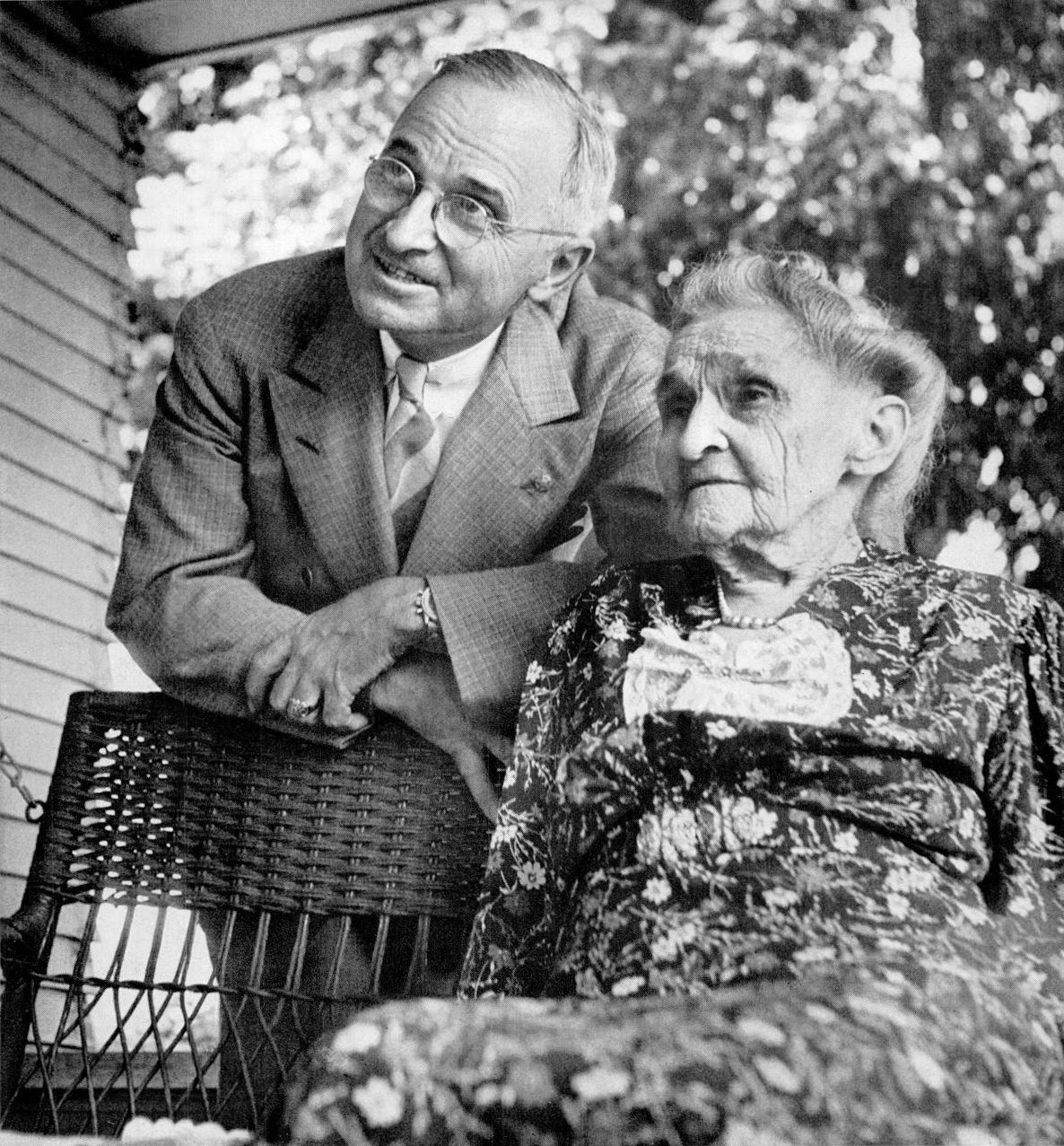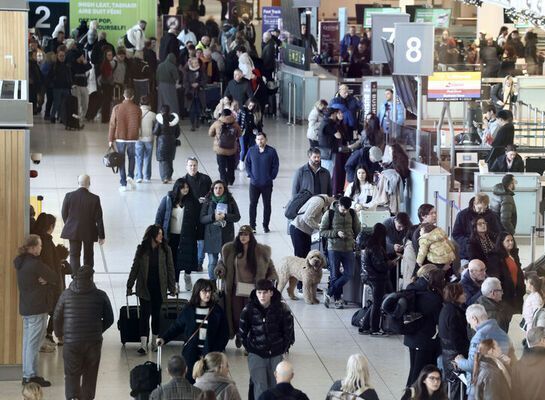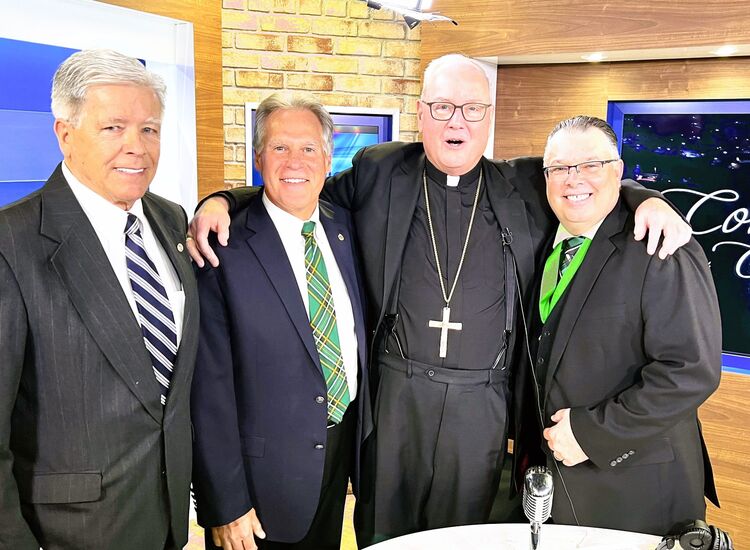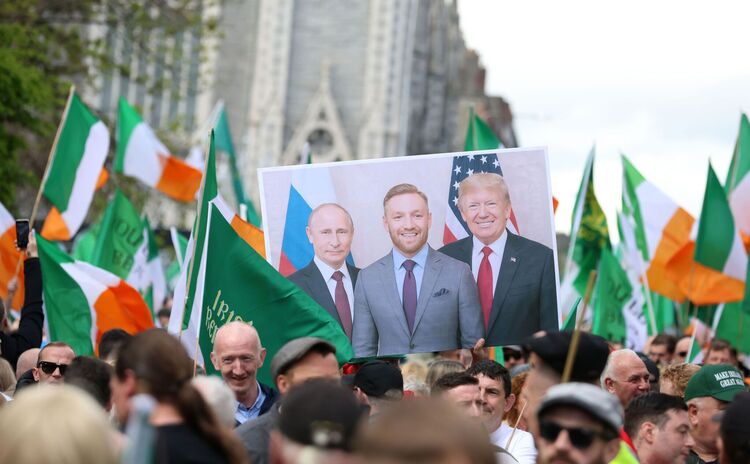Peter Quinn was once visited by agents of the Kansas Bureau of Investigation. So he reveals in his memoir “Cross Bronx: A Writing Life,” which has just been published.
It was 1970 and they wondered if he might be some kind of outside agitator. President Nixon was due to speak at Kansas State University in the town of Manhattan, and they weren’t taking any chances.
In January of that year, Quinn had been even further west of the Bronx to train for Volunteers in Service to America, or VISTA, in Denver, Colo. The instructor – chain-smoking miner’s son and prominent sociologist Howard Higman -- asked the recruits to talk for three minutes about something they knew nothing about.
“I had a broad range to choose from,” Quinn writes.
According to Higman, in the memoirist’s account, “the poor had been examined under a microscope. It was time to turn the microscope on ourselves. People on top and in the middle needed someone on the bottom. When they talked about tackling poverty they meant ensuring the poor were well behaved. It wasn’t a matter of welcoming the poor to the neighborhood.”
Quinn was posted to Kansas City. Kan., and would work out of a settlement house there for a year. KCK, which adjoins “its famous cousin” Kansas City, Mo., “felt more like a southern town than a city. For one thing, it was dry.”
There was a time, though, when lots of people across the border in Western Missouri identified with the South; indeed, sections of it were known as “Little Dixie,” and folks like the James family of Clay County were slave-owners. Frank and Jesse James were pro-Confederate terrorists, or bushwhackers, in a state where the Civil War was often a brutal conflict of neighbor against neighbor.
In 1884, two years after Jesse James was gunned down at his home in St. Joseph, Mo., Harry S. Truman was born in Barton County to a family that on both sides had owned slaves. When as a young adult Truman visited his grandmother in Independence proudly wearing his National Guard uniform, she wasn’t impressed – he looked much too like the Union soldiers who had walked uninvited through her kitchen and farm back in 1865.
Truman’s parents had years before decided to move back to Independence, which is just east of Kansas City, in part because it had a proper school system. He dreamt of going to West Point, but his eyeglasses prevented that. They weren’t a problem when he volunteered for the army after America entered World War I in 1917.
The Baptist farmer’s son and Freemason was surprised and, he confessed later, a little frightened to find himself promoted in France to lead an artillery unit comprised mostly of Irish and German Catholics from Kansas City. Among them was a soldier whose family was a big player in politics, one that would come to dominate the Kansas City machine in the 1920s and ‘30s. After the war Jim Pendergast and his father Mike paid a visit to Truman to ask if he was interested in a political career. He certainly was, and he was eventually elected presiding judge (an executive position, not a judicial one) of Jackson County, which encompasses both Kansas City and Independence.
Truman was highly efficient and above reproach personally, but the Prendergast machine was famously corrupt and had uncomfortably close ties to organized crime. To its credit, though, it worked hard, harder than the big-city machines, to include in its voting coalition people across ethnic and racial lines.
The permissive Pendergast regime allowed drinking and gambling during Prohibition, and the city also became one of America’s “cradles of jazz.” As it happens, jazz great Charlie Parker was born in KCK in 1920 and raised near Westport in KCMO. (The Battle of Westport back in October 1864 was called the “Gettysburg of the West.” The town was incorporated into Kansas City in the 1890s and these days the neighborhood is known for its entertainment venues.)
In 1934, the St. Joseph-born T.J. Pendergast, the top boss, persuaded Truman to run in the U.S. Senate Democratic primary. The man from Independence won the three-candidate race and prevailed in November, too. Some in Washington would refer to Truman over the next several years as “the senator from Pendergast.” It didn’t help the cause of his 1940 reelection campaign that his mentor was doing time in Leavenworth having been convicted of tax evasion. He won nonetheless and was selected by a group of party bosses (most of them Irish) to be President Roosevelt’s safely centrist running mate in November 1944.
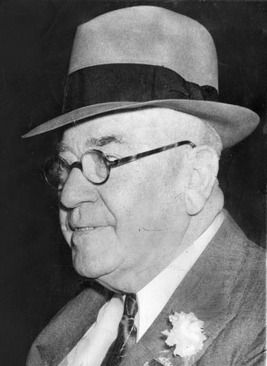
T.J. Pendergast pictured at the 1936 Democratic National Convention in Philadelphia.
After FDR had won his fourth term, a United Press report, datelined “KANSAS CITY, Jan. 29,” opened with: “The vice president of the United States flew to Kansas City today in an Army plane to attend the funeral rites for Thomas J. Pendergast, the political Caesar who lifted him into the U.S. Senate 11 years ago.”
Next time: Jackson County, Mo., in the election year of 2022 and how the area’s most famous paper is covering it.

